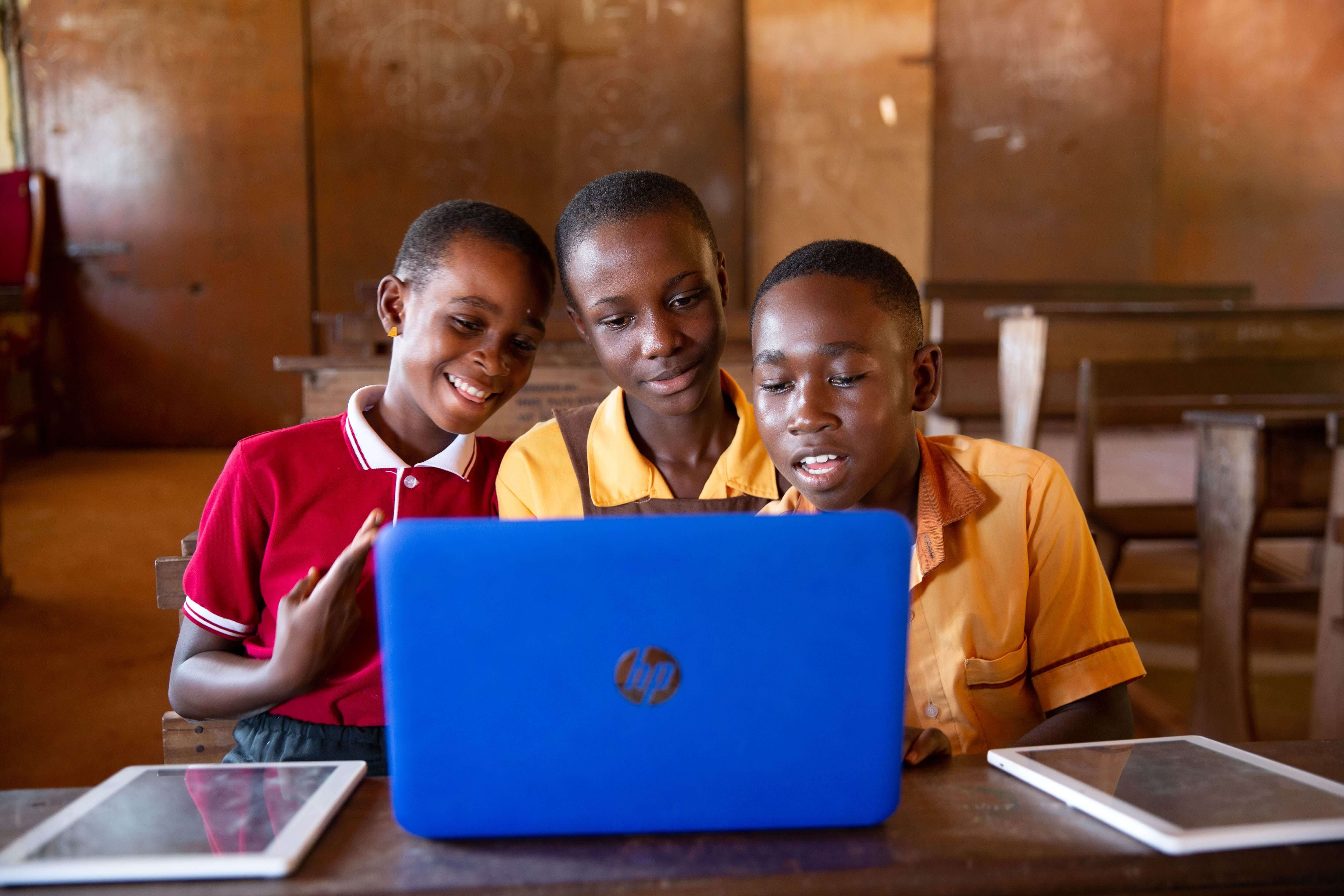Geo-spatial engineer Josephine Godwyll came up with the idea when, as a student, she taught at a rural school during an outreach programme. Her students did not have access to library books or laboratories, and had to rely on theoretical lessons only.
Her unit contains laptops, tablets and practical teaching and learning materials, customised to suit the size of the school. Each device is preloaded with the Ananse The Teacher e-learning app, which uses interactive games and local folklore to encourage reading, as well as science, technology, engineering, art and maths (STEAM) content. The practical kits also contain readily-available household materials to use in STEAM-related hands-on activities.
Fixed libraries and laboratories cost up to $25,000 to build, and cater for a limited number of students in Ghana. Many schools are unable to afford these, and operate without regular power supply.
Lab and Library on Wheels eliminates the need for fixed libraries and laboratories, as the $6,500 hand-cart with e-resources and kits can be pushed from one classroom to the next. Schools that are unable to pay upfront can arrange a payment plan. Godwyll’s team installs a solar panel on the roof of each school, and energy from the panel is stored in a battery and used to charge all devices. She is updating the cart to include a built-in battery and solar panels so that the cart can be used in places that are even more remote.
Five hundred children at three Ghanaian schools are already using Godwyll’s technology. After only four practical lessons, 72% of students scored above average in evaluation tests, and after six months of using the Lab and Library on Wheels, the students average test scores increased by 21%.



